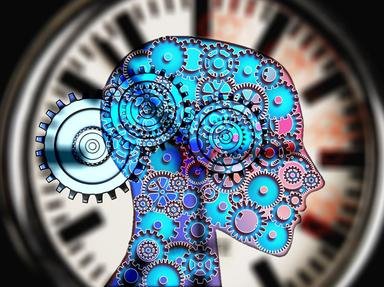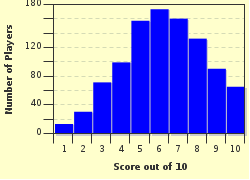Quiz Answer Key and Fun Facts
1. Which of these would be considered a negative symptom of schizophrenia?
2. Used in conjunction with medications and other therapies, ECT remains an option for the treatment of mood disorders. What does ECT stand for?
3. The side-effects of antipsychotic medications can often mimic the symptoms of which other disease?
4. What is the name for a partial or complete loss of coordination of voluntary muscular movement?
5. Which of these mood stabilising drugs does NOT have any anticonvulsive effect?
6. DSM-IV is the fourth edition of a manual listing categories of psychiatric disorders and the criteria that must be met in order for a mental health professional to diagnose a disorder. What is DSM short for?
7. If a person is experiencing akathisia, what are they unable to do?
8. Wernicke-Korsakoff syndrome is characterised by apathy, amnesia, confabulation and ataxia. It is caused by the lack of which vitamin or mineral?
9. There are many different classes of antidepressant medications. If you were taking a MAOI (Monoamine Oxidase Inhibitor), which of these food lists should you avoid entirely?
10. A person has the following symptoms: consistent irresponsibility, deceitfulness, impulsivity, a disregard for safety of self or others, aggression, a lack of remorse over hurtful actions and a failure to conform to social norms. What disorder would this suggest?
Source: Author
jondalah
This quiz was reviewed by FunTrivia editor
crisw before going online.
Any errors found in FunTrivia content are routinely corrected through our feedback system.


